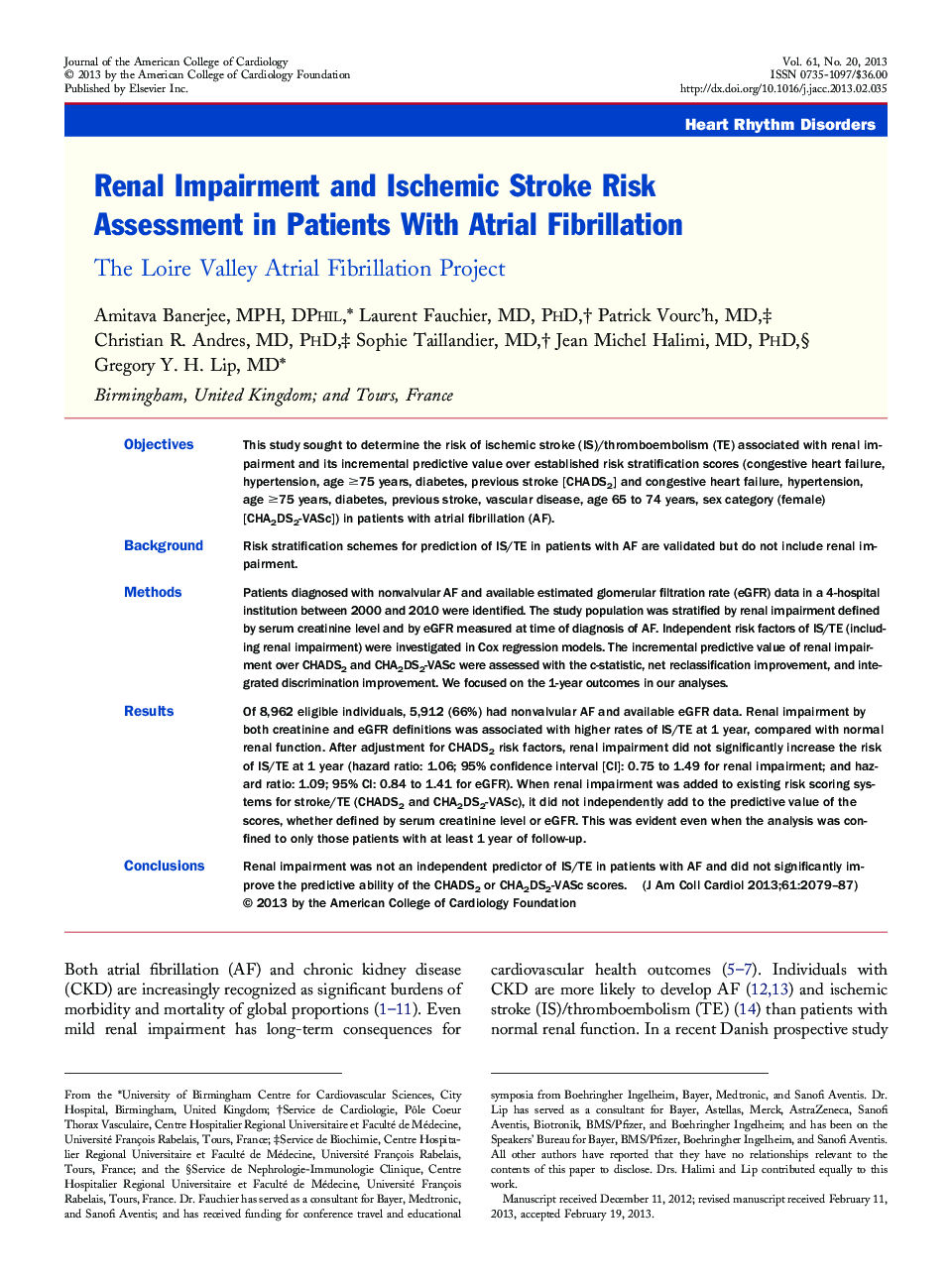| کد مقاله | کد نشریه | سال انتشار | مقاله انگلیسی | نسخه تمام متن |
|---|---|---|---|---|
| 5983320 | 1577158 | 2013 | 9 صفحه PDF | دانلود رایگان |
ObjectivesThis study sought to determine the risk of ischemic stroke (IS)/thromboembolism (TE) associated with renal impairment and its incremental predictive value over established risk stratification scores (congestive heart failure, hypertension, age â¥75 years, diabetes, previous stroke [CHADS2] and congestive heart failure, hypertension, age â¥75 years, diabetes, previous stroke, vascular disease, age 65 to 74 years, sex category (female) [CHA2DS2-VASc]) in patients with atrial fibrillation (AF).BackgroundRisk stratification schemes for prediction of IS/TE in patients with AF are validated but do not include renal impairment.MethodsPatients diagnosed with nonvalvular AF and available estimated glomerular filtration rate (eGFR) data in a 4-hospital institution between 2000 and 2010 were identified. The study population was stratified by renal impairment defined by serum creatinine level and by eGFR measured at time of diagnosis of AF. Independent risk factors of IS/TE (including renal impairment) were investigated in Cox regression models. The incremental predictive value of renal impairment over CHADS2 and CHA2DS2-VASc were assessed with the c-statistic, net reclassification improvement, and integrated discrimination improvement. We focused on the 1-year outcomes in our analyses.ResultsOf 8,962 eligible individuals, 5,912 (66%) had nonvalvular AF and available eGFR data. Renal impairment by both creatinine and eGFR definitions was associated with higher rates of IS/TE at 1 year, compared with normal renal function. After adjustment for CHADS2 risk factors, renal impairment did not significantly increase the risk of IS/TE at 1 year (hazard ratio: 1.06; 95% confidence interval [CI]: 0.75 to 1.49 for renal impairment; and hazard ratio: 1.09; 95% CI: 0.84 to 1.41 for eGFR). When renal impairment was added to existing risk scoring systems for stroke/TE (CHADS2 and CHA2DS2-VASc), it did not independently add to the predictive value of the scores, whether defined by serum creatinine level or eGFR. This was evident even when the analysis was confined to only those patients with at least 1 year of follow-up.ConclusionsRenal impairment was not an independent predictor of IS/TE in patients with AF and did not significantly improve the predictive ability of the CHADS2 or CHA2DS2-VASc scores.
Journal: Journal of the American College of Cardiology - Volume 61, Issue 20, 21 May 2013, Pages 2079-2087
